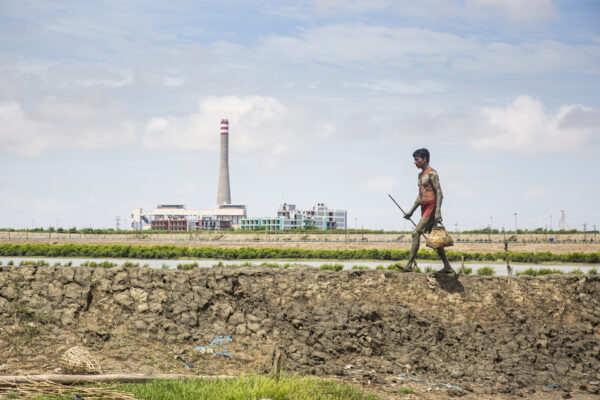Copyright newstatesman

The drug thalidomide was withdrawn in 1961 after it was shown to have caused birth defects in thousands of children worldwide. More than a decade later, Paul Foot railed against the political establishment’s ongoing neglect of families affected. Mr Peter Green, the head of the Wrenson chain of supermarkets, took another few bottles of Haig from the shelves of one of his stores, and turned purposefully to the television interviewer. No, he denied firmly, his ban on Distillers products was not a publicity stunt. Such a suggestion was quite disgraceful. “We should,” he said, “think of the children first.” Everyone agrees with him. The Daily Express in an editorial on 4 January commented: “For heaven’s sake let them [the government and Distillers] think and act for the children.” The Express called on all shareholders to sacrifice part of their dividends to the deformed children. No news was recorded of any example from Sir Max Aitken, the Express’s proprietor, who owns more than 6,000 Distillers shares. Even the City of London has been parading its conscience. From Flemings (Distillers’ merchant bankers) to the Prudential Assurance Company, which is Distillers’ biggest shareholder, there has been a “determination” to see that a “fair settlement” is reached for “these unfortunate children”. In Parliament, the Labour Party has been full of moral indignation. Led by Jack Ashley, MP for Stoke-on-Trent South, backbenchers have hurried to tell the government how badly they are behaving, and how government has a responsibility to “look after the children”. Mrs Barbara Castle, when she was on the front bench, joined in the indignation. Mr Harold Wilson told a caller to Midweek that the £350,000 spent on the Fanfare for Europe should have gone to the thalidomide children. Even the government have not been unmoved. The “compassion” of Sir Keith Joseph was so obviously sincere during the Commons debate on thalidomide in December that very few people noticed Sir Keith’s “declaration of interest” – that he was a member of a Lloyds syndicate which had insured Distillers over the marketing of thalidomide, and that he stood to lose money from any compensation settlement between the parents and the company. Mr Anthony Barber’s sharp letter to Distillers was clearly meant to be taken as an earnest of government disapproval. No doubt Mr Barber took advice from his Minister of State at the Treasury, Mr Patrick Jenkin, who was Distillers’ Parliamentary adviser for most of the years in which the thalidomide babies were suffering without compensation. One aspect of the matter, however, has tended to be overlooked by almost every commentator. Thalidomide was withdrawn In 1961. Its victims have all been alive for more than 10 years. During that time the press, Parliament, politicians and above all the law did their best to ensure that children and parents were fobbed off with totally inadequate compensation and that the “good name” of Distillers was unsullied. At the outset, Distillers clearly did not intend to pay anything at all. In December 1961, Sir Graham Hayman, then chairman, announced that the company was withdrawing thalidomide “as a precaution”. “Everything,” he said, “is being thoroughly tested. There is no danger and not the slightest risk.” This view was supported by Tom Margerison, the Sunday Times science correspondent, who wrote: “Thalidomide is much safer [than barbiturates] and very large doses have been taken in several cases without the patient dying.” As it became clear that some 400 children had been hideously deformed because their mothers had taken the drug during pregnancy, Distillers’ attitude changed a little. At the company’s annual meeting in September 1962 Sir Graham assured his shareholders: “There has been no testing procedure recognised at the time which we could have used to discover what was now suspected might be the effect of this drug on women in early pregnancy.” He went on to announce that there was “nothing with which the company should reproach itself”. To demonstrate the company’s generosity, however, Sir Graham disclosed a donation of £250,000 to an Edinburgh institution for research into congenital deformity among infants. That, it is clear, was all Distillers intended to pay and, as far as the press and politicians were concerned, that was all they ought to have paid. Slowly during the 1960s the writs on behalf of parents claiming damages from Distillers for negligence started to trickle in. Only limited legal aid was granted to some of the parents, and the cases were held up by interminable delays. Throughout its term of office, from 1964 to 1970, the Labour government did nothing to assist the thalidomide children. The matter is mentioned in Hansard only five times in those six years. Most of the references come in written answers to questions. On 24 November 1964, for instance, Mr Adam Hunter, Labour MP for Dunfermline, asked the Minister of Health whether he would make a contribution from government funds to Lady Hoare’s thalidomide appeal. Mr Kenneth Robinson, labour’s newly-appointed Minister of Health, replied: “All the health and welfare services that can help, including the limb-fitting service, are available to these children and their parents. While most appreciative of what has been done as a result of the appeal, the government can itself more appropriately help through these services than by a financial contribution.” In February 1968 the Distillers company agreed in the High Court to pay out about £1m to 64 children by way of a final settlement, provided they withdrew all allegations of negligence. Then on 8 March Mr J M Temple, Tory MP for Chester, asked about other children affected by the drug, and whether Mr Robinson would “consider taking steps to ensure that they may be granted payment from public funds in lieu of compensation”. Mr Robinson replied: “Greatly as I sympathise with the families affected, I do not think an inquiry could add significantly to the knowledge we already have. The Distillers company are reported as having indicated that they will consider ways of providing a substantial sum for the direct assistance of malformed children who do not benefit from the settlement of certain claims which was recently approved in the High Court.” The final reference was in November 1969 when Mr Crossman, Labour Minister for the Social Services, turned down a suggestion from another Tory MP (Mr Edward Taylor) that he should appeal to Distillers to give compensation to one deformed baby whose legal case had fallen because too much time had elapsed between the damage and the writ. The truth is that in Parliament Labour maintained a deafening silence on thalidomide during the years when they could have done something about it. Mr Jack Ashley was silent. So was Mrs Castle. As for Harold Wilson, although he took part in various expensive banquets to assist Britain’s entry into Europe, he authorised the payment of not a penny to assist the thalidomide children. While the politicians maintained silence, the courts intervened actively – on the side of Distillers. The February 1968 settlement, which has left many parents bankrupt or poverty stricken, was described in the High Court by Mr Justice Hinchcliffe as “fair and just”. “It is,” he said, “in the interests of the infant plaintiffs and their parents, and it reflects great credit on all those who have taken part in negotiating it… it would be folly to refuse such an offer.” This was agreed by Mr Desmond Ackner QC (now a judge) who was instrumental in persuading the parents to accept the offer. “Iff the actions had continued,” he told the court, “the plaintiffs could have failed to recover a penny piece.” Not one word of editorial criticism was written in the newspapers in protest at this scandal. In a headline, The Times described the damages as “heavy”. Some 300 children remained uncompensated, and in late 1971 the company finally formulated plans for a charitable trust fund of £3.25m. This was accepted by all but five parents, who were immediately put under pressure by the other parents, by Distillers and by the legal advisers of both to accept the offer. On 20 December 1971 the rebel parents got some help from the Daily Mail. That morning, the Mail printed a front-page article, entitled SCANDALOUS!, in which they gave some prominence to the views of a scientific consultant, Dr Montague Phillips, that the offer was disgracefully low. Dr Phillips had played some part in advising the parents in the thalidomide suits. He was well qualified in drug-testing techniques. He was by nature a protester and I remember many visits from him to Private Eye to complain about this or that scandal. He was particularly incensed about the behaviour of Distillers and the various lawyers involved in the thalidomide compensation. Dr Phillips was armed with documents about Distillers’ tests on thalidomide before it was marketed, and also with the compensation figures for thalidomide babies in other countries (including one baby in America who had been awarded $1m.). These are the documents, incidentally, which form the basis of the Sunday Times articles suppressed by Sir Peter Rawlinson. Distillers are currently suing the Sunday Times for the return of the “Phillips documents” and even Dr Phillips’s widow (he died recently) has not been spared the inevitable Distillers writ. On 21 December 1971 a letter was delivered by hand to Mr Vere Harmsworth, chairman of Associated Newspapers, which owns the Daily Mail. It was from Kimber, Bull and Co., a firm of solicitors which represented several of the parents who wanted a speedy settlement on Distillers’ terms. The Mail article, said the letter, constituted a “clear contempt of court”. There followed a simple threat: “There is a real possibility that the proposed settlement may fail, for if parents believe what you tell them they may decide to reject the proposals; in that event the proposals will not be available.” Moreover, warned Kimber, Bull and Co., if the Distillers offer was withdrawn, “we shall then consider whether or not the losing parents and children have a remedy against you”. The letter concluded by demanding “an end to public ventilation of the merits and demerits of the offer”. This letter was discussed at an editorial conference in the Daily Mail the following morning, and the editor, David English, replied with yet another furious front-page article on the subject. The reply to this came on 11 January 1972 from the office of the Attorney General, Sir Peter Rawlinson. Sir Peter warned of a formal complaint that the Mail had, by publishing these articles, been in contempt of court. “Negotiations between the parties are currently in progress,” said his letter, and there was “no immediate decision” from the Attorney General upon this complaint. This heroic intervention had the desired effect of stopping the Daily Mail thalidomide campaign. Distillers, thanks to the law courts and the government law officers, could breathe again. In the 10 years from the withdrawal of thalidomide Mr David Green’s supermarkets made hundreds of thousands of pounds from selling Distillers products. The Prudential Assurance Company made millions out of Distillers’ dividends and Flemings made millions from handling Distillers’ accounts. From none of these was there a whisper of protest about the plight of the deformed children and their parents. In this time, Distillers went from strength to strength: Pre-tax profits (£m): 26.1 in 1959, 35.7 in 1967, 41.1 in 1968, 49.8 in 1969, 52.5 in 1970, 54.7 in 1971, 64.0 in 1972. Most of this was handed out to Distillers shareholders. These are the sums which must be compared with the £20m which Distillers now plan that they (or, if they have their way, their insurers) will pay out to the children in the next 10 years. Yet in spite of the mounting hypocrisy on all sides, and the still puny offer from the company, there is in the last few weeks’ developments an element of triumph. On 11 October last year Sir Alexander McDonald, Distillers’ chairman, wrote to Tony Lynes, a shareholder, outlining the insurmountable legal objections to “giving away £20m of the company’s funds” (as he then chose to put it). It was, he wrote, clearly out of the question that so large a sum could be handed over. Less than three months later, Sir Alexander (or some luckless Lloyds underwriters) are forced to “give way” even more. The sheer enormity of the horror which Distillers unleashed has been exposed with such ferocity that they have been forced twice to double their “final” offer to seven times what Mr Justice Hinchcliffe just five years ago declared was “fair and just”. The danger is that everyone will slap themselves on the back, assure themselves that we really do have a free press and humanitarian financial institutions, and ignore the real causes of the thalidomide disaster, which are rooted in the irresponsible power of bigger and bigger drug companies. As I write, the Distillers share price is soaring as a direct result of their new offer. There is every guarantee of even better dividends for Distillers shareholders next year, but no guarantee that even worse disasters than thalidomide will not occur again. [Further reading: From the archive: The King’s decision]



